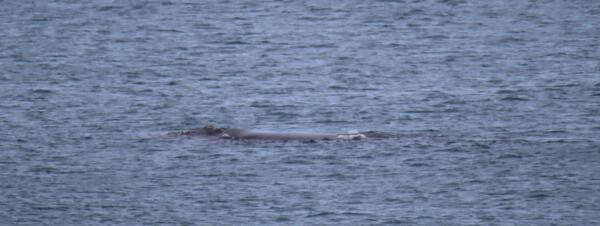
Whale watching is a unique and enriching experience that offers numerous benefits, particularly for individuals living with dementia. Engaging with nature has been shown to significantly improve the wellbeing of those with cognitive impairments. This natural connection fosters a sense of calm, joy, and engagement, contributing positively to their overall health.
The Therapeutic Power of Nature
Nature has a profound impact on mental health. For individuals with dementia, the sensory stimulation provided by natural environments can enhance mood and reduce agitation. Whale watching, in particular, offers a dynamic and captivating experience that can engage multiple senses. The sight of these majestic creatures, the sound of the waves, and the fresh sea breeze can create a deeply immersive and therapeutic experience.
Benefits of Whale Watching for Dementia Patients
1. Sensory Stimulation: The multi-sensory experience of whale watching can help stimulate brain activity, providing a refreshing break from the often monotonous routine of daily care. The visual and auditory elements of the experience can trigger positive emotional responses, aiding in reducing symptoms of anxiety and depression.
2. Emotional Connection: Whale watching can evoke strong emotional reactions, fostering a sense of awe and wonder. This emotional engagement can be particularly beneficial for dementia patients, as it can help them feel more connected to the world around them, countering feelings of isolation and confusion.
3. Social Interaction: Group activities such as whale watching trips can enhance social interaction, which is crucial for mental health. Sharing the experience with others can build a sense of community and support, offering both patients and caregivers a chance to bond and share joyful moments.
Safe Solutions Care: Pioneering Nature-Based Therapies
Safe Solutions Care is committed to integrating nature-based therapies into their dementia care programs. Recognising the therapeutic benefits of nature, they organise regular outings and activities that allow residents to engage with the natural world.
Their whale watching programs are meticulously planned to ensure safety and comfort. Trained staff accompany residents, providing the necessary support to make the experience enjoyable and stress-free. These outings are designed to be inclusive, considering the varying mobility and cognitive levels of participants.
Conclusion
Whale watching is more than just a recreational activity; it is a powerful tool for enhancing the wellbeing of individuals with dementia. The sensory richness and emotional impact of nature, combined with the careful planning and support provided by organisations like Safe Solutions Care, make such experiences both beneficial and accessible. By fostering a connection to nature, we can significantly improve the quality of life for those living with dementia, offering them moments of joy, peace, and connection.
